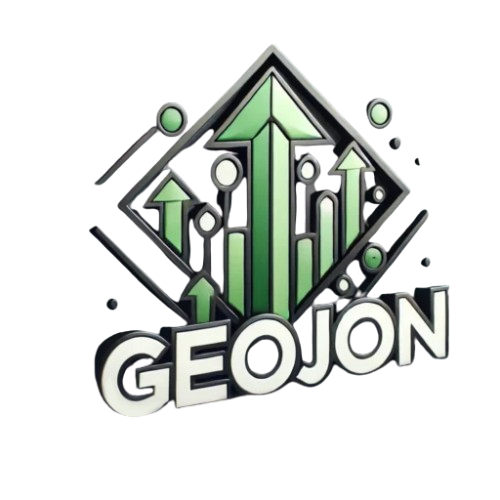
Key Takeaways:
- SearchGPT brings conversational AI to search, focusing on understanding user intent and delivering detailed, natural language responses.
- Perplexity emphasizes precise, cited answers and excels in synthesizing information from diverse sources.
- Google remains the most versatile tool for general searches, offering a vast database and near-instantaneous results.
- The right choice depends on your specific needs: interactivity, academic rigor, speed, or comprehensiveness.
Estimated Reading Time: 10 minutes
Introduction: The Evolution of Search Technology
For decades, search engines like Google have shaped how we access and consume information. The traditional model—entering a keyword and scrolling through a list of ranked links—has become second nature for internet users. However, the rise of artificial intelligence is transforming this landscape. AI-powered tools like SearchGPT and Perplexity are not just optimizing search but redefining it, offering conversational interfaces, synthesized answers, and personalized recommendations.
This generative search engine guide compares SearchGPT, Perplexity, and Google across various dimensions, including functionality, performance, use cases, and privacy. By the end, you’ll have a clear understanding of which platform suits your unique search needs.
SearchGPT: The Conversational Specialist
SearchGPT, is ChatGPT search developed by OpenAI, represents a significant leap in search technology. Unlike traditional search engines, it focuses on interaction and understanding, treating your queries as part of an ongoing conversation. Its core strength lies in the depth of its responses. For instance, if you ask, “Explain quantum entanglement,” SearchGPT won’t just provide links—it will break down the concept step by step, adapting its explanation based on follow-up questions.
Advantages of SearchGPT
- Conversational Depth: SearchGPT’s ability to follow up on previous queries creates a natural and intuitive user experience.
- Contextual Understanding: It grasps the nuances of complex questions, tailoring its answers accordingly.
- Custom Applications: Through integrations like Apple’s Shortcuts app, SearchGPT can power workflows and automate tasks.
However, SearchGPT is not without limitations. Its responses depend on its training data and external web integrations, which may sometimes lack depth for highly specific or niche queries. Additionally, its conversational nature can feel slower compared to traditional keyword-based search engines like Google.
Perplexity: The Citation King
Perplexity AI’s approach to search is defined by precision and transparency. It positions itself as an “answer engine,” synthesizing information from a range of trusted sources and providing citations for every response. This makes it particularly valuable for professionals and academics who need verified information.
How Perplexity Works
Imagine you’re researching the economic impact of renewable energy. Perplexity will not only summarize key findings but also cite sources like journal articles, government reports, and reputable websites. This makes it easier to verify the information and dive deeper into specific aspects.
Advantages of Perplexity
- Citation Transparency: Every piece of information is backed by sources, increasing trustworthiness.
- Efficient Summarization: Perplexity excels at condensing large volumes of data into digestible insights.
- Minimalist Interface: Its clean design focuses entirely on delivering relevant answers without distractions.
However, Perplexity’s reliance on pre-existing web content means it can sometimes struggle with cutting-edge topics or creative queries.
Google: The Titan of Traditional Search
Google’s dominance in the search industry is no accident. With billions of web pages indexed, advanced ranking algorithms, and tools like Featured Snippets, Google is optimized for speed and comprehensiveness. When you need a broad overview of a topic or access to diverse perspectives, it remains the go-to option.
Why Google Still Reigns
Take a query like, “Best hiking trails near me.” Google will return a rich tapestry of results: local guides, user reviews, maps, and even curated lists. Its ability to present varied formats—text, video, and images—makes it highly versatile.
Advantages of Google
- Speed: Google delivers results almost instantaneously, making it ideal for quick searches.
- Comprehensiveness: No other tool matches Google’s breadth, from blog posts to scholarly articles.
- Integration: Google’s ecosystem (Maps, YouTube, Shopping) enhances its utility for practical searches.
That said, Google’s vastness is also its Achilles’ heel. The sheer volume of information can overwhelm users, and its reliance on ad-driven models sometimes prioritizes paid content over organic relevance.
Generative Search Performance Comparison: A Detailed Analysis

Accuracy and Reliability
Accuracy depends on the nature of the query. For example:
- SearchGPT is excellent for interpretative or conversational searches, such as “How does the blockchain work?”
- Perplexity shines in research-oriented queries requiring precise data and citations.
- Google is a jack-of-all-trades but less effective for nuanced questions where context matters.
Speed and Efficiency
- Google is the clear winner in terms of raw speed, delivering millions of results in milliseconds.
- Perplexity and SearchGPT trade off some speed for quality and depth, making them better suited for reflective or detailed searches.
Chart: Speed Comparison by Query Type
| Query Type | SearchGPT | Perplexity | |
|---|---|---|---|
| Conversational | Medium | Fast | Very Fast |
| Research-Based | Medium | Medium | Fast |
| General Search | Slow | Fast | Very Fast |
Use Cases
General Information Retrieval
SearchGPT and Perplexity are ideal for users who want direct answers without sifting through links. Google excels in breadth, offering a comprehensive view of any topic.
Academic Research
- SearchGPT: Useful for explanations but lacks scholarly citations.
- Perplexity: Best choice for verifiable, citation-based research.
- Google: Google Scholar is indispensable for accessing peer-reviewed journals.
Technical Queries
SearchGPT simplifies troubleshooting with step-by-step instructions, while Google’s vast resources—tutorials, forums, and guides—make it a powerhouse for technical searches.
Privacy and Security Considerations
With increasing concern over data privacy, the search platforms take different approaches:
- SearchGPT emphasizes secure processing, though its reliance on cloud data processing can raise concerns.
- Perplexity collects minimal user data, focusing on privacy by design.
- Google, while robust in security measures, collects substantial user data to power personalization.
Final Comparison Chart
| Feature | SearchGPT | Perplexity | |
|---|---|---|---|
| Best For | Conversational | Research and insights | General search |
| Speed | Moderate | High | Very High |
| Citations | Low | High | Low to Moderate |
| User Experience | Interactive | Focused | Versatile |
Conclusion: Choosing the Right Tool
Ultimately, the choice between SearchGPT, Perplexity, and Google depends on your specific needs:
- Choose SearchGPT for conversational, in-depth exploration.
- Opt for Perplexity if you value precision and transparency, especially for academic or professional use.
- Stick with Google for general searches and diverse formats.
The future of search will likely involve even deeper integration of AI, making tools like SearchGPT and Perplexity valuable complements to Google, as compared to a complete replacement therein.
Search
Recent Posts
ChatGPT Search Goes Account-Free: The Future of
- February 7, 2025
- 13 min read
Strategies to Dominate Consumer Searches with AI
- January 13, 2025
- 15 min read
Boost Visibility: Integrate GEO with SEO Strategies
- January 6, 2025
- 6 min read








